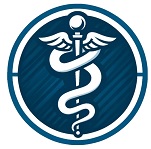If you are considering a career in medicine or dentistry, it is wise to carefully evaluate all of your options before making a final decision. Talking with practicing physicians or dentists may help guide you towards making an informed decision that suits you personally.
Medical school can often be seen as more rigorous than dental school due to the length of its program – which may last 10 years or more.
Personal Interest and Aptitude
Dental school and medical school both involve intense studies of human anatomy and patient care, providing profound satisfaction from improving people’s health while potentially saving lives. Yet both careers may involve long hours and significant clinical work which may prove daunting and stressful.
Dental students follow an educational curriculum composed of classroom courses and practical experience. Their first two years are comprised of subjects like anatomy, physiology, microbiology and biochemistry as well as taking an exam known as the Dental Admission Test to measure academic ability, perceptual skills and scientific comprehension.
Medical school, on the other hand, usually involves two steps. First comes an undergraduate pre-med degree (3 to 4 years). Next comes an MD course (4 years). Furthermore, family practitioners need to complete a three-year residency program before becoming family physicians; it may also be necessary to pass a Medical College Admission Test similar to DAT.
Supportive Environment
Dental school is a four-year program, typically featuring lots of class work. Students take classes that provide in-depth instruction in various scientific subjects – often repeating and building upon what was learned during undergraduate studies.
One study demonstrated a strong link between student satisfaction with the educational environment and academic major satisfaction. Furthermore, higher levels of satisfaction with educational environments were associated with greater resilience and quality of life outcomes.
Many dental students come from diverse backgrounds, each bringing different experiences to the classroom. Therefore, schools must provide a supportive environment, including commitments to diversity, inclusion and equity through various resources such as student mentors at UB SDM to assist their journey through dental school; prospective and current students alike can also access this valuable information via their newsletter Contour.
Financial Considerations
Consideration must be given when making the choice to pursue a career in medicine, dentistry or life sciences. You should assess factors like program duration, curriculum focus, competitiveness and earnings potential when making this important decision.
Dental school requires both time and money for its completion, so students should budget appropriately while exploring options such as scholarships or grants which don’t require repayment, in addition to limiting student loans to only cover tuition and essentials costs.
Dental school typically spans four years: the initial two are spent in classroom study and preclinical labs; students then transition into clinical patient care during years three and four of dental school. Medical schools require their students to pass both Steps One and Two of the United States Medical Licensing Examinations (USMLE), which cover an expansive set of medical knowledge and skills.
Stress Management
Careers in medicine or dentistry are highly-stakes decisions that carry significant responsibilities. Medical professionals and dentists find great satisfaction helping others improve their health and well-being, as well as saving lives, but these careers can be highly demanding and potentially stressful.
Dental school, on the other hand, typically provides more hands-on training and shorter degree programs than medical degrees. Furthermore, students can find scholarships for both degrees to ease financial burden.
The initial two years of dental school are dedicated to studying subjects like biology, human physiology and anatomy. At this stage of studies, it’s crucial that students remain highly diligent.
The fourth year of dental school primarily involves clinical training through simulated patient care simulation, while the final two years involve working directly with real patients in clinics and hospitals. Working directly with them can be very rewarding as well as help reduce stress for students as they continue their careers.
